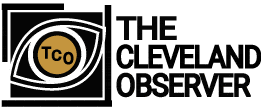|
|
By Sheila Ferguson Ph.D., LPCC
Sixty-nine-year-old Carrie Little tells an all too familiar story about the surprises that can come with our annual physical exams. “I have always had a clean bill of health until now. However, my doctor called to say ‘your lab results indicate that your cholesterol levels are too high. (200 mg per deciliter mg/dl or HDL level of less than 50 mg/dl0) So, it is time to prescribe you a statin medication.’ ”
“She also noted that the problem was so serious that I was at risk for cardiovascular disease-related problems like Heart Attack, and Atherosclerosis. She also noted the possibility of AFib, and dementia if I did not change my lifestyle. In short, I had to start eating a more cholesterol-deficient diet, exercise daily, and not smoke or consume alcohol. She encouraged me to get better educated about coronary heart disease.”
The Merck Manual, 2019 Edition;
Too much cholesterol in arteries causes Atherosclerosis or hardening of the arteries. This buildup restricts blood flow and can cause a heart attack or stroke.
What is Hypercholesterolemia
Hypercholesterolemia or high blood cholesterol can be either inherited or sporadic. There is a direct link between your cholesterol levels and your risk for heart disease.
Cholesterol is a naturally occurring substance in the body. 75% of the cholesterol in our bloodstream is made in the liver, and the remaining 25% comes from what we eat.

https://www.medicinenet.com/cholesterol_management/article.htm
In Medline’s Warning Signs and Symptoms article (2021), it is reported that elevated blood cholesterol levels endanger your health and can even cause premature death. Hypercholesterolemia is most problematic from midlife through the elder years. The problem is even more grave when considering the 2021 American Health Association reported that “half of the American men and a third of women suffer a heart attack by age 60.
Diagnosis & Testing
There are no symptoms of high cholesterol. Thus, the only way to determine if you have high cholesterol, or you are producing too much is through blood tests. Too much cholesterol in arteries causes Atherosclerosis or hardening of the arteries. This buildup restricts blood flow and can cause a heart attack or stroke. Persons with Hypercholesterolemia can reduce their risk by eating a cholesterol deficient diet, exercising, and quitting smoking. Elevated levels may also indicate the need to take prescribed medications that lower your cholesterol level.
Diagnostic Testing
Experts at the Mayo Clinic recommend asking your doctor to complete a “lipid panel and lipid profile” during your annual physical exam and interval check-ups. These tests measure the amount of cholesterol and triglycerides in your blood. They can also determine your risk of increasing fatty deposits in your arteries throughout your body.
Note: Only have your cholesterol evaluated when you feel well and are thirty to 45 days past surgery and anesthesia. Also, make sure you have not had food or beverages after midnight on the day before testing. The aim is to measure “fasting blood” sugar levels.
A Plan for Reducing Your Risks
Carrie embarked on a plan that includes:
- A Plan for Reducing Your Risks
- Carrie embarked on a plan that includes
- Taking the statin “Atorvastatin” prescribed by her doctor
- Daily 30-minute walks
- Eating only lean meats, poultry, and seafood
- Eating two to three servings of fruits and vegetables per day
- Drinking eight 8-ounce glasses of water, or a half gallon of water per day to prevent dehydration
- Improving her sleep hygiene with 7-9 hours of undisturbed sleep without blue light interference
References:
Cholesterol: High, Normal, Low Levels, and Chart (medicinenet.com)=
Warning signs and symptoms of heart disease: MedlinePlus Medical Encyclopedia
Healthy living | Heart and Stroke Foundation


